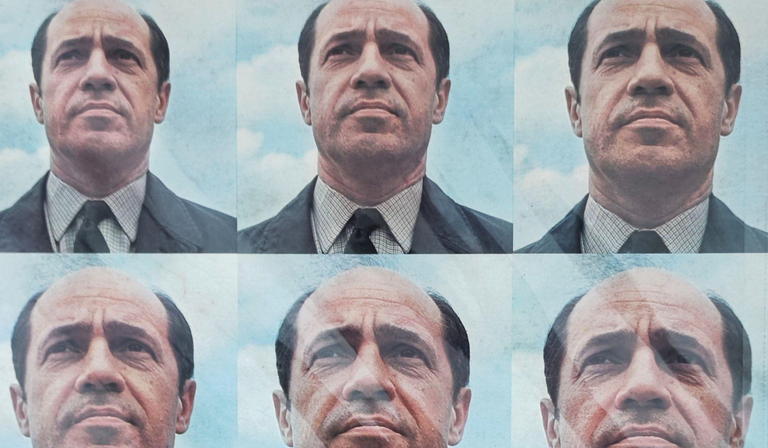When I worked in television, many moons ago, one of my jobs as a lowly researcher was to scour the reference books (this was long before Google, before AI, in the age of the press cuttings library and the research bibliography) looking for anniversaries around which to base documentaries. I’m still at it today, planning concert—not TV—programmes: 50 years since the death of Benjamin Britten (next year) or 200 since the death of Franz Schubert (2028). Births ought perhaps to be a little more inspiring, and there is one that strikes me now, though not for reasons of concert programming.
I only met Pierre Boulez (born 1925) once, and the circumstances were not propitious. Back in 2010, I’d been asked to sing in Stravinsky’s short opera Le Rossignol; a concert performance with the Berlin Philharmonic conducted by said Boulez. I agreed and put it to the back of my mind. Some months after the enquiry, I happened to be in the café of the Hotel Imperial in Vienna, having the best Wiener schnitzel in the world (by far) for lunch. As I walked into the loos for a postprandial pee, who should I bump into but Boulez? I knew who he was, of course; he had no idea who I was. I introduced myself, said we would soon be working together and he left, seeming a little dazed and confused. A few months later, I had to withdraw from the concert. I’d assumed Le Rossignol was in French. In fact, as any fule kno, the text is in Russian and I hadn’t left enough time to prepare. And so my only chance to work with one of the legends of 20th-century music, as composer and conductor, perished from my own ignorance.
When Boulez died in early 2016, I was flying back from a recital in Grenoble and was stunned by the copious coverage in the French press—detailed, serious and laudatory. I remembered, by comparison, the response to Britten’s death in the UK, 40 years earlier. It had been an item on the early morning news; coverage in the papers was respectful but not fulsome. The Times obituary (cryptically printed next to an article on Christian attitudes to homosexuality) was headed merely “A major contribution to English music”. Something of an understatement, as far as I’m concerned.
♦♦♦
The centenary of Boulez’s birth has encouraged me to listen to music from which I’ve shied away for all sorts of reasons. First and foremost because, professionally, there’s nothing for me to sing. The famous break-out work Le Marteau sans maître is for mezzo-soprano; the later work Pli selon pli (cruelly reframed as “Plink selon plonk” by Roger Scruton) is for soprano.
Beyond this, I have a suspicion of this music—which must stem from some sort of irrational sense of personal affront. Boulez’s contemporary Hans Werner Henze (1926–2012) was an important part of my life as a singer; he wrote deeply personal, beautiful music for me to sing. Boulez was well known for the violence of his radical musical polemic, and Hans was one of those who suffered at his hands: Boulez, Stockhausen and Luigi Nono notoriously stomped out of an early Henze premiere. Boulez’s conviction that his way was the only way affected programming, commissioning and the reputation of composers whose music, for me, is far more important and (crucially) human than the detached sounds of the avant garde. For Boulez, Shostakovich was like a third olive oil pressing of Mahler; Britten was vulgar, his War Requiem like “incidental music for a film by Cecil B DeMille” (a stale rehash of Stravinsky’s envy-fuelled remarks). He was powerful and, as Antonio Pappano recently remarked in the Guardian, “responsible for sidelining a lot of music”.
There were all sorts of reasons for the triumph of the avant garde in the period after 1945. Clement Greenberg had already, in 1939, excoriated what he called “ersatz culture” in his influential article “Avant-Garde and Kitsch” in the Partisan Review; after the war, Adorno declared that there could be “no poetry after Auschwitz”. Berio talked about “writing music without being personally involved”; the New York Times critic Donal Henahan wrote of Boulez dealing with the Mallarmé texts of Pli selon pli “antiseptically, like a rubber-gloved dental technician”. Emotional involvement and expression were to be feared and avoided; the dialogue with tradition, which has been the cornerstone of western classical music even in its most revolutionary periods, was taboo. This is music that, for all its atmospherics and the inventiveness of its sonorities, has, as Scruton put it, “little or no propulsion from one moment to the next”.
Boulez recorded Le Marteau sans maître five times and it’s striking, to the innocent ear, how the last recording with the superb mezzo Hilary Summers relaxes into a sort of lushness that one might almost call Romantic. It seems to me that Boulez’s music will enter into the great river of music history only as a tributary (and surely it’s only right that the avant garde should not aspire to the mainstream). I’ll keep trying to like it, and still suspect, deep down, that it’s my ignorance that gets in the way. The other thing I’m sure of is that, if this music is to live, it will be interpreted and end up sometimes a long way from what the composer originally intended.













